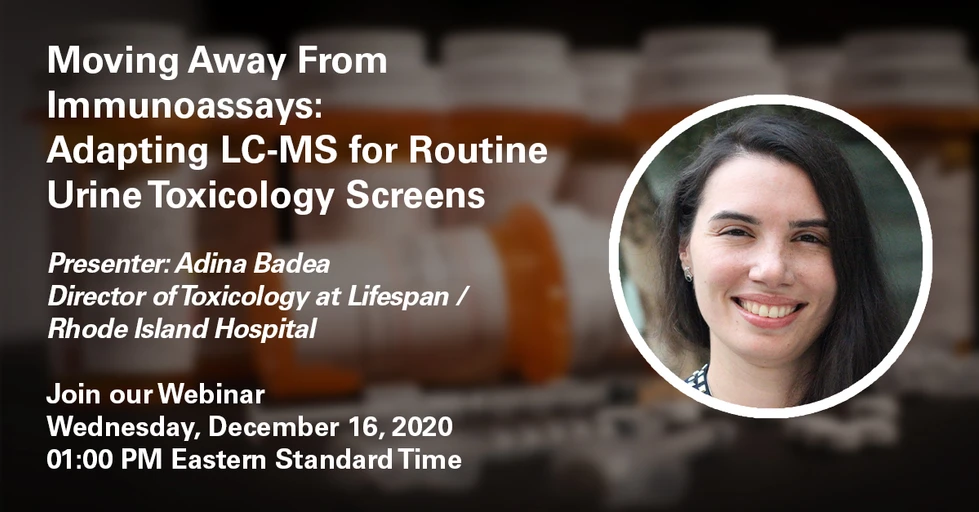Moving Away From Immunoassays: Adapting LC-MS for Routine Urine Toxicology Screens

Immunoassays dominate the drug screen assay market as the most widely used method for routine urine toxicology screens. However, this method of analysis lacks specificity and suffers from cross-reactivity with irrelevant, similarly structured compounds. Furthermore, not all immunoassays are sensitive to drug metabolites, leading to false negatives. These limitations lead to the need for confirmation testing by LC-MS/MS, which has longer turnaround times. The Toxtyper is an automated LC-MSn coupled with a method-specific library search engine and compound identification algorithm. Its push-button interface is designed for implementation in the lab without the need for toxicology trained staff.
This webinar will be focused on the Toxtyper drugs-of-abuse (DOA) LC-MSn method and how it compares with the currently used immunoassays (CEDIA, EMIT and DRI) for urine toxicology routine panels in terms of sensitivity, number of compounds identified, speed, and sample preparation. The comparative study conducted by Dr. Adina Badea, PhD, DABCC, demonstrated that the Toxtyper provides consistent results with commonly used immunoassay screens, within a competitive timeframe. Furthermore, the added information and specificity provided by the LC-MSn system can have a significant impact in optimization of patient care.
Key Learning Objectives:
- Comparison between the Toxtyper LC-MS and conventional immunoassays
- Avantages of using the Toxtyper system to optimize patient care
- Using the Toxtyper to elucidate unusual exposures in the emergency medicine setting
Who Should Attend:
- Toxicologists
- Medical Examiners
- Toxicology Lab Supervisors
For Research Use Only. Not for use in clinical diagnostic procedures.
Presenter: Adina Badea (Director of Toxicology at Lifespan / Rhode Island Hospital)
Dr. Adina Badea, PhD, DABCC, received her clinical chemistry and toxicology training from UCSF, where she worked under the supervision of Dr. Alan Wu and Dr. Kara Lynch on developing methods and finding new solutions to current challenges in clinical toxicology testing. Currently she is Director of Toxicology at Rhode Island Hospital and Assistant Professor of Pathology and Laboratory Medicine at The Warren Alpert Medical School of Brown University, where she focuses on expanding the capabilities of the clinical toxicology lab using high resolution mass spectrometry and investigating emerging matrices.
